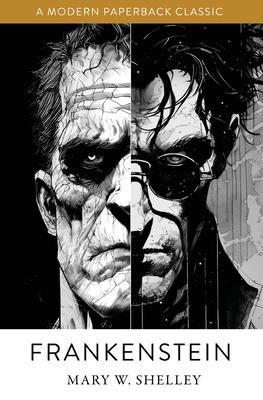In Mary Shelley's timeless classic, Frankenstein, a captivating tale of ambition, creation, and the consequences of playing God unfolds. Set against a backdrop of 18th-century Europe, this remarkable novel delves deep into the human psyche, unraveling the intricate threads that connect the nature of existence, identity, and the moral responsibilities of scientific discovery.
At the heart of the story stands Victor Frankenstein, a brilliant and ambitious young scientist driven by a relentless thirst for knowledge. Obsessed with defying the natural order of life and death, Frankenstein embarks on a daring experiment to create life from inanimate matter. Through a process of meticulous trial and error, he succeeds in fashioning a grotesque yet sentient being.
However, Frankenstein's triumph soon metamorphoses into a profound tragedy. Horrified by the monstrous creation he has birthed, he rejects it, casting it out into a world that rejects it in return. Driven by a sense of abandonment and consumed by anguish, the creature embarks on a relentless pursuit of its creator, seeking answers, understanding, and ultimately, revenge.
Shelley masterfully weaves together themes of power, responsibility, and the innate yearning for acceptance and connection. As Frankenstein and his creation wrestle with their shared humanity, the novel poses thought-provoking questions about the limits of scientific progress and the moral implications of our actions. It delves into the profound consequences that arise when we dare to play with the very essence of life itself.
Beyond its philosophical undertones, Frankenstein is a gripping tale of suspense and horror. Shelley's exquisite prose paints vivid scenes, from the desolate landscapes of the Arctic to the tortured depths of the human soul. With each turn of the page, the story unravels the darkest corners of the human psyche, probing the depths of fear, guilt, and the relentless pursuit of knowledge.
Frankenstein remains an enduring masterpiece that continues to captivate readers across generations. Through Shelley's masterful storytelling, we are reminded of the power and dangers that lie within our own creations, urging us to confront our responsibilities as stewards of science and technology.
This Modern Paperback edition includes Mary W. Shelley's 1831 introduction, and new imaginative illustrations by Jason Reinert.
